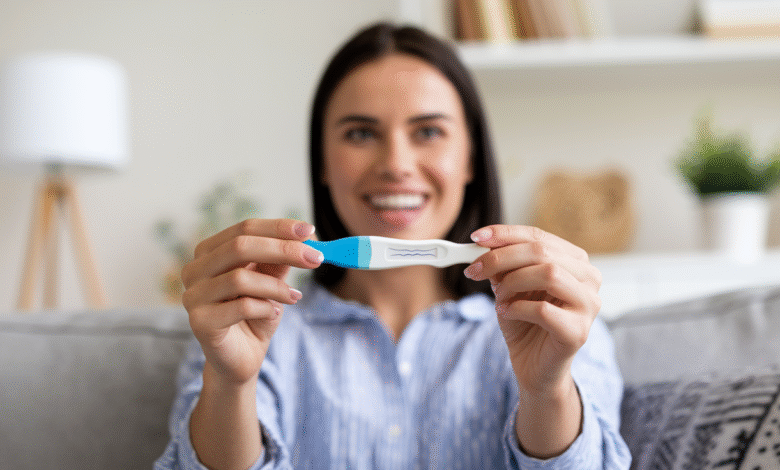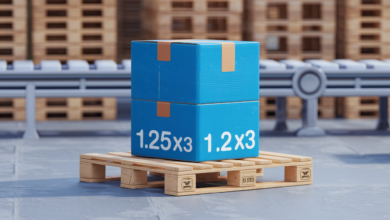Can Twins Cause False Negative Pregnancy Test? Understanding the Rare Hook Effect

Can twins cause false negative pregnancy test results? Many people assume that a pregnancy test is always correct, but in rare cases, it can give a negative result even when you are pregnant with twins. Home pregnancy tests work by detecting a hormone called hCG, which your body produces during pregnancy. Normally, hCG levels rise steadily, and the test can pick it up easily. However, in twin pregnancies, hCG levels can become extremely high very quickly. This sudden surge can sometimes overwhelm the test, a rare situation called the hook effect. Because of this, the test may show a negative result even though you are pregnant with two babies. While this does not happen often, it can be confusing and worrying for parents-to-be. Understanding why it happens can help you know when to retest or see a doctor for a blood test to confirm your pregnancy.
If you are wondering can twins cause false negative pregnancy test, it is important to remember that timing and test type also matter. Testing too early, using diluted urine, or using an expired test can also cause false negatives. But with twins, the unusually high hCG levels are the main reason for the rare hook effect. This is why doctors sometimes suggest getting a blood test instead of relying only on home tests, especially if your test results don’t match your pregnancy symptoms. Blood tests can accurately measure hCG levels and confirm a multiple pregnancy. Ultrasounds are also important because they can show if you are carrying twins, even if your urine test was negative. Always remember that a negative home test does not always mean you are not pregnant, particularly with twins. Being aware of this rare possibility can reduce stress and help you take the right steps to confirm your pregnancy safely.
How Home Pregnancy Tests Work and Why They Can Fail
Home pregnancy tests are designed to detect a hormone called hCG in your urine, which your body makes when you are pregnant. When you pee on the test strip, special chemicals react with hCG and show a line or symbol to indicate pregnancy. These tests are usually very accurate when used correctly. However, they can fail if the urine is too diluted, the test is expired, or it is taken too early before enough hCG is present. Even shaking the strip or reading it too late can give wrong results. Most of the time, the tests work perfectly, but knowing how they work helps you understand why sometimes they show a negative result even if you are pregnant, especially in rare cases like carrying twins.
Can Twins Cause False Negative Pregnancy Test? Understanding the Hook Effect
Sometimes, twins can cause false negative pregnancy test results because of the hook effect. This happens when hCG levels in your body are extremely high, which can overwhelm the test strip. Instead of showing a positive line, the test might show negative even if you are pregnant. This is very rare but can happen in multiple pregnancies. The hook effect is why a home test may not always be reliable for twins. Doctors often suggest a blood test because it can measure hCG levels accurately and confirm pregnancy. Ultrasounds can also help detect twins early, even when a home test fails. Understanding the hook effect helps you stay calm and take the right steps to confirm your pregnancy safely.
Common Reasons for a False Negative Test
False negative pregnancy tests can happen for many reasons. Testing too early is one of the most common causes because hCG may not be high enough to detect. Using diluted urine, such as after drinking a lot of water, can also make the test less accurate. Expired or damaged tests, or not following instructions properly, are other reasons. Even stress and certain medications can sometimes interfere with results. Knowing these causes helps you understand that a negative result does not always mean you are not pregnant. If your period is late and symptoms appear, it’s a good idea to retest after a few days or see a doctor for a blood test.
How Timing Affects Your Pregnancy Test Accuracy
The timing of your pregnancy test is very important. Testing too early after conception may not give enough time for hCG levels to rise, which can lead to a false negative. First-morning urine is usually the most concentrated and gives the most accurate results. Waiting at least a week after a missed period is recommended for reliable results. Even with twins, taking a test too soon can be misleading. Retesting a few days later or using a blood test can help ensure accuracy. Timing, combined with proper testing methods, makes a big difference in understanding whether you are truly pregnant or not.
Blood Tests vs. Home Tests: Which Is More Reliable for Twins?
Blood tests are more reliable than home tests, especially when carrying twins. Blood tests measure the exact amount of hCG in your body and can detect pregnancy earlier and more accurately. Home tests rely on urine and may fail if hCG levels are too high or too low. In twin pregnancies, hCG rises faster and can sometimes cause the hook effect, leading to a false negative. A doctor can order a blood test and an early ultrasound to confirm if you are pregnant and check for multiples. Blood tests give clearer results, so if a home test is negative but you have symptoms, seeing a doctor is the best choice.
Symptoms of Pregnancy You Should Watch For
Pregnancy symptoms can give clues even if a test is negative. Common signs include missed periods, nausea, fatigue, breast tenderness, and frequent urination. Some women also experience mood swings or food cravings. In twin pregnancies, symptoms may be stronger due to higher hormone levels. Paying attention to these signs can help you decide when to retest or visit a doctor. Symptoms alone cannot confirm pregnancy, but combined with tests, they help you understand what your body is experiencing. Noticing early signs is important so you can get proper care and support during pregnancy.
When to See a Doctor if Your Test is Negative but Symptoms Persist
If your pregnancy test is negative but you still feel pregnant, it is important to see a doctor. Persistent symptoms like missed periods, nausea, or fatigue mean your body may be pregnant even if the test says no. A doctor can do a blood test or an ultrasound to confirm. Seeing a doctor early ensures you get proper care for your health and your babies’ health if you are carrying twins. Don’t wait too long because early confirmation helps in planning and managing a safe pregnancy.
Conclusion
Pregnancy tests are usually accurate, but rare situations like twin pregnancies can cause false negatives. The hook effect is a rare reason why a test may not show positive even if you are pregnant with twins. Understanding this helps you stay calm and not panic.
If your test shows negative but you feel symptoms, wait a few days and retest or see a doctor. Blood tests and ultrasounds give more accurate results. Being aware of these possibilities ensures you take the right steps for your health and your baby’s health.
FAQs
Q: Can twins really cause a false negative pregnancy test?
A: Yes, but it is very rare. High hCG levels from twins can cause the hook effect and show a negative result.
Q: How soon can a blood test detect pregnancy?
A: A blood test can detect pregnancy about 7–10 days after conception, earlier than home tests.
Q: What is the hook effect in pregnancy tests?
A: The hook effect happens when extremely high hCG levels overwhelm the test, causing a false negative.
Q: Should I retest if my home pregnancy test is negative?
A: Yes, especially if you have symptoms or a missed period. Retest in a few days or get a blood test.
Q: Can stress or medications affect pregnancy tests?
A: Yes, stress or some medications may slightly affect results, but timing and test use are more important factors.



